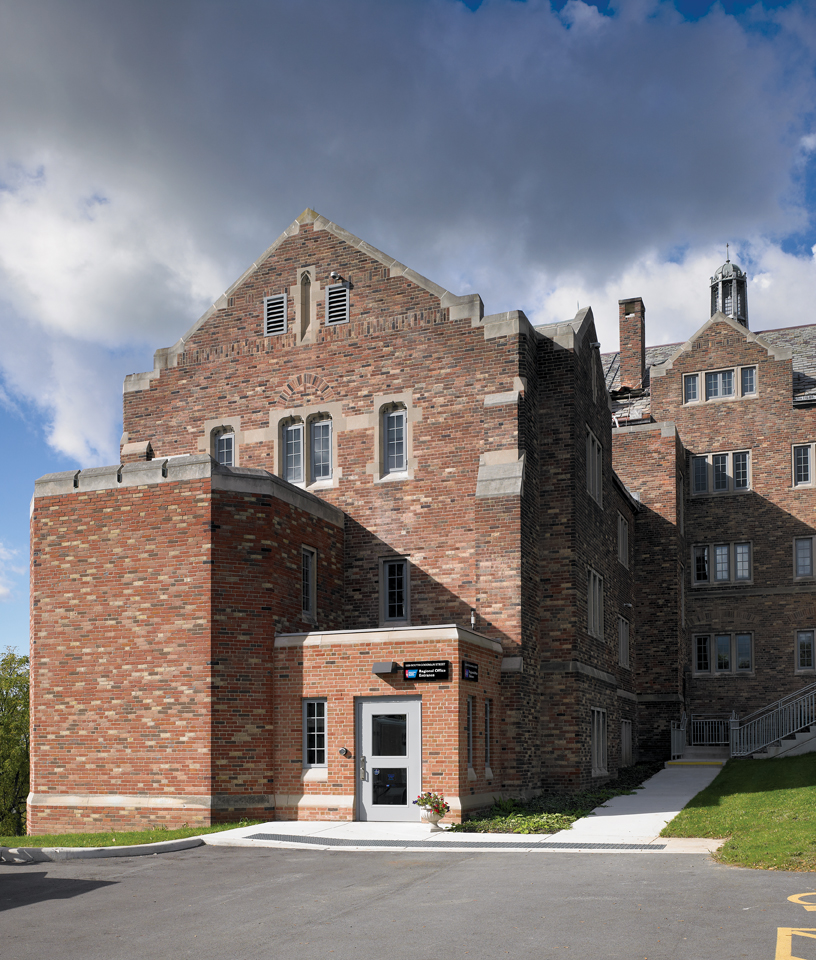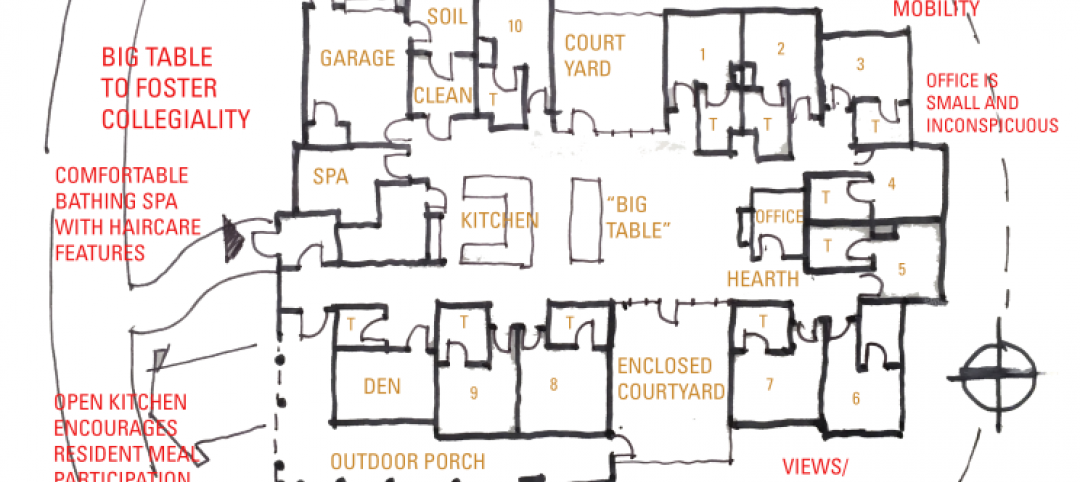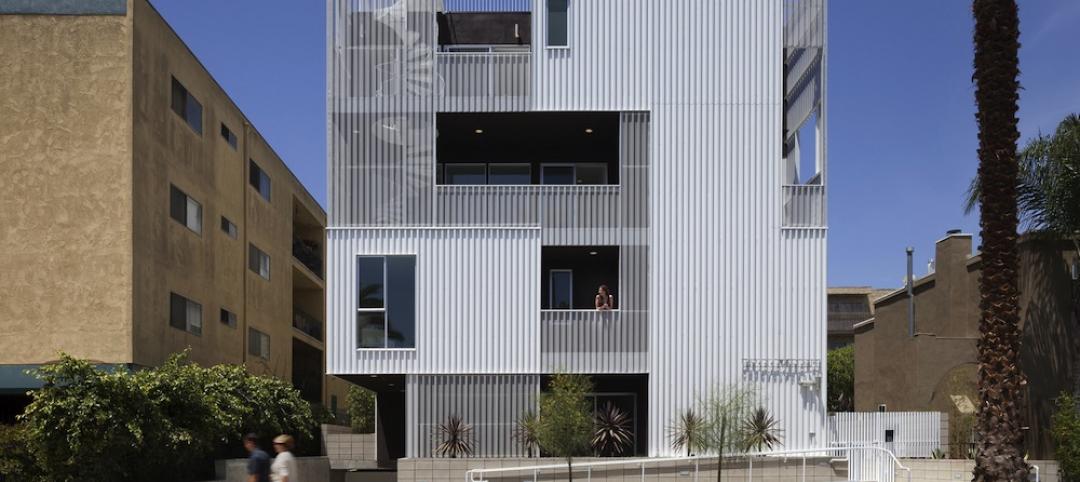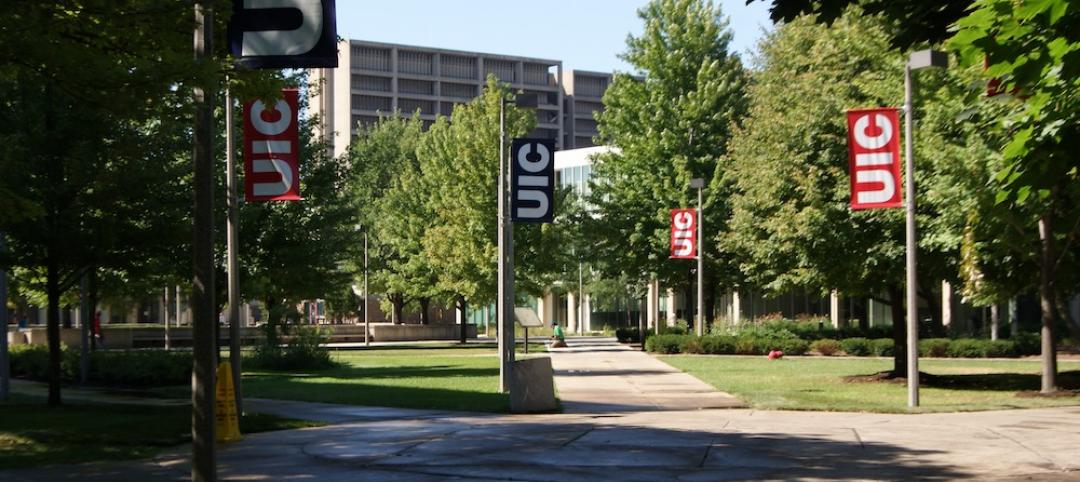The B. Thomas Golisano Hope Lodge Hospitality House, located on the edge of the Colgate Rochester Crozier Divinity School (CRCDS) campus in Rochester, N.Y., was destined to change the lives of many who have called the building home.
Constructed in the 1930s, the structure hosted CRCDS’s theological studies while serving as a seminary dormitory. Composed and rendered in the collegiate gothic style by architect James Gamble Rogers, the “Castle on the Hill” echoed similar structures found on the campuses of Yale, Columbia, and Northwestern.
Over time, the number of students requiring dormitories dwindled, and CRCDS found itself with more space than it needed.
Eventually, school officials decided to operate within a smaller footprint. However, CRCDS was still tasked with maintaining all campus buildings, including the now-vacant structure. As expenses related to the building mounted, school officials considered demolishing it.
With the future of the structure in doubt, the nearby American Cancer Society’s Rochester Hope Lodge was quickly outgrowing its facility of 25 years. It did not take long before CRCDS and American Cancer Society realized the benefits of a partnership.
Click here to view profiles of other reconstruction projects that have been recognized as part of BD+C's 28th Annual Reconstruction Awards.
As the partnership between CRCDS and American Cancer Society evolved, the CRCDS’s vacant theological studies center and seminary dormitory were selected as the home for the new Hope Lodge. Design concepts were quickly formulated, and a budget established thanks to $8 million in fundraising efforts, led by philanthropist B. Thomas Golisano.
The early stages of the reconstruction project progressed smoothly until a hazardous materials survey conducted on the facility revealed the presence of asbestos in the finishes and roofing materials. But it was also infused in the plaster covering the walls and ceilings throughout the buildings.
GIVING THE BUILDING ENVELOPE THE ONCE-OVER
In addition to the asbestos removal, the existing floor layout would have to be gutted as the narrow double-loaded corridor did not meet current egress requirements. The single-occupant rooms were cramped and much too small for the needs of Hope Lodge. Finally, the historic masonry exterior and the slate roof of the building had suffered decades of deferred maintenance and were in need of repair.
“We were, in many ways, creating a new building envelope. The restoration of the historic exterior required close coordination with the new interior perimeter,” says Jim Durfee, AIA, principal architect, Bergmann Associates.
The Building Team, consisting of local firms Bergmann Associates (architect), Torchia Structural Engineering (structural engineer), and LeChase Construction (construction manager), faced other design issues on the Hope Lodge project as well.
PRODUCT LIST
B. Thomas Golisano Hope Lodge, Hospitality House, Rochester, N.Y.Masonry Cleaner: Sure Klean
Roofing: Carlisle Epdm
Windows: Oldcastle Ogep Series 2000
Gypsum Board: USG
Window Treatments: Drapery Industries
Interior Signage & Donor Wall: Id Sign Systems
Artwork: Great American Art (Brontman’s Corporate Dimensions)
Furniture: Om Workspace (Carolina & Grand Rapids)
Lamps: Crown Electric
Interior Architectural Woodwork: Solid Surface, Zodiak
Solid Surface: Corian
Plastic Laminate: Formica
Plastic Laminate: Wilsonart
Acoustical Ceiling: Acoustical Ceiling Tile, Armstrong World Industries, Inc.
Tile Carpeting: Modular Tile Carpet, 24" X 24" Shaw Contract Group Collection, Dressed To Kill
Modular Tile Carpet: 18" X 18" Bentley Prince Street Collection, Saturnia
Modular Carpet Tile: 24"X24" Patcraft & Design Weave Collection, Construkt Series
Walk-Off Mat: 12"X12" Roppe Surface Walk-Off Mat Collection, 'Rop-Cord' Rubber (Tire Tread) Tiles
Interior Paint: Sherwin Williams, Pro-Green Interior Latex
Toilet Compartments: Hadrian
Plumbing Fixtures: American Standard
Fan Coils: Enviro-Tec Johnson Controls
Heat Recovery Units: RenewAire
Air Handlers: Mcquay
Elevators: Otis
One complicated design-related issue involved the original engineering of the two adjoining structures, Trevor and Eaton Halls. The independent structures each had their own floor levels, which did not align. “The existing footprint was particularly challenging. The fact that these were really two separate buildings separated by a quirky staircase made achieving a clear floor layout difficult,” says Durfee.
In order to get the buildings to function as one structure, a strategically located ramp allowed the second level of the structure to function contiguously while a centrally located stair with multiple flights and landings to each building provided occupant circulation.
The Building Team also faced low floor-to-ceiling heights that complicated insertion of a new HVAC system. Eventually, a four-pipe, console fan coil system was installed in order to minimize the need to extensive air distribution ductwork.
“The biggest challenge was threading new utilities through the new layout working around a very limited floor to floor height. This required careful design and utility coordination in order to maintain our aesthetic goals for the space,” says Durfee.
Handicap accessibility throughout the facility also proved problematic. The development of two exterior access points on different levels of the complex and the strategic insertion of two new elevator shafts provided a solution.
BUILDING TEAM EARNS CLIENT’S RESPECT
Hope Lodge provides free lodging and support for out-of-town patients drawn to the regional medical treatment centers in Rochester. By offering patients and caregivers a temporary home during extended periods of treatment, the Hope Lodge program frees patients from emotional and financial burdens, allowing them to concentrate on care, recovery, and quality of life.
The new 28,000-sf B. Thomas Golisano Hope Lodge Hospitality House doubled the capacity of the former Rochester Hope Lodge, while also providing 8,000 sf of office space for the American Cancer Society.
Irregular shell space resulted in unique layouts for all 30 guest rooms, each of which included a private bathroom. Common spaces and services include laundry, kitchen, dining room, living area, and a library.
On the exterior, the gothic architecture was fully restored, including the masonry, the replacement of the slate roof, and new steel sash windows that maintained the appearance of the original windows.
“I was initially concerned about the various complexities inherent in this project and with the structure of the building we were to renovate,” says Matthew Flanigan, regional vice president, American Cancer Society. “Very quickly, the Building Team assured us they were up to the task, and just as quickly began to show they were qualified. Working with this team of professionals was seamless through the many phases of planning to post-construction wrap up. Ultimately, it’s the Hope Lodge Hospitality House guests that have confirmed our true pleasure in this outcome.” BD+C
--
Click here to view profiles of other reconstruction projects that have been recognized as part of BD+C's 28th Annual Reconstruction Awards.
Related Stories
Architects | Apr 20, 2016
Bill Hellmuth named HOK’s new CEO
Hellmuth has been HOK's President since 2005. The firm will be led by a design principal for the first time since 1990.
Libraries | Apr 18, 2016
Best in Library Design: AIA names seven projects 2016 Library Building Awards winners
Snøhetta’s Ryerson University student center and the Billings (Mont.) Public Library by Will Bruder+Partners highlight the seven winning projects.
Architects | Apr 14, 2016
You can watch over 50 architectural documentaries on YouTube for free
The Arts & Culture Bureau YouTube channel offers architectural documentaries about structures and works that span thousands of years and dozens of locations
Senior Living Design | Apr 14, 2016
Creating a home for eldercare using the ‘Green House’ design concept
VOA Associates’ Douglas King offers design considerations in implementing the Green House concept in eldercare for continuing care retirement communities.
Industrial Facilities | Apr 13, 2016
Ford begins 10-year plan to centralize Dearborn, Mich., campus
The company said that it will rebuild 7.5 million sf of work space over a 10-year period, which will shift 30,000 employees from 70 buildings now into two primary locations.
Building Tech | Apr 12, 2016
Should we be worried about a tech slowdown?
Is the U.S. in an innovative funk, or is this just the calm before the storm?
Multifamily Housing | Apr 7, 2016
Multifamily and Specialized Housing projects honored in 2016 AIA Housing Awards
A San Francisco low-income mixed-use complex, a Los Angeles homeless veterans housing facility, and a series of student residential buildings at UMass were among the winners.
Green | Apr 4, 2016
AIA report analyzes 20 years of the best green projects
"Lessons from the Leading Edge" is a study of the 200 Committee on the Environment (COTE) Top Ten Award winning projects since 1997.
Architects | Apr 1, 2016
Adrian Smith earns UIC’s Legacies and Leaders Award
The Chicago architect graduated from the school and created a scholarship for aspiring architects.
Architects | Mar 31, 2016
Zaha Hadid dies at 65
Often credited as being a pioneer for women architects for her work in a male-dominated field, Hadid had designs commissioned around the world from London to Hong Kong to Cincinnati.

















